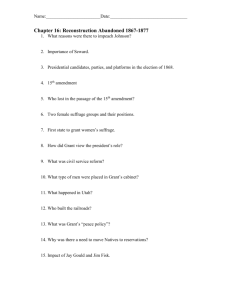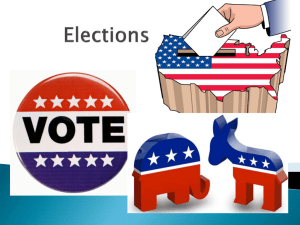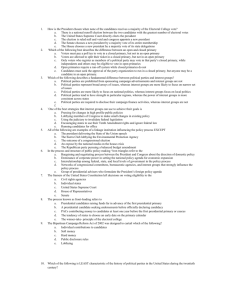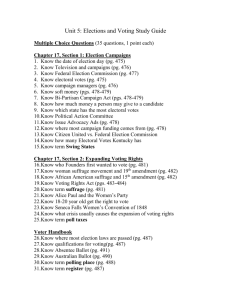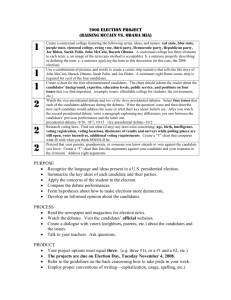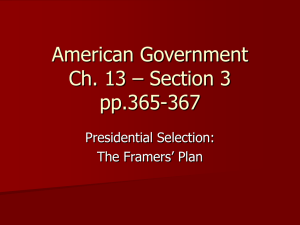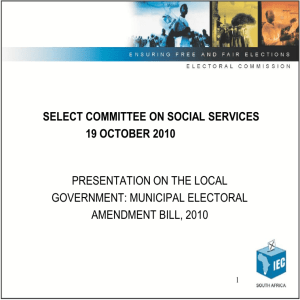File
advertisement
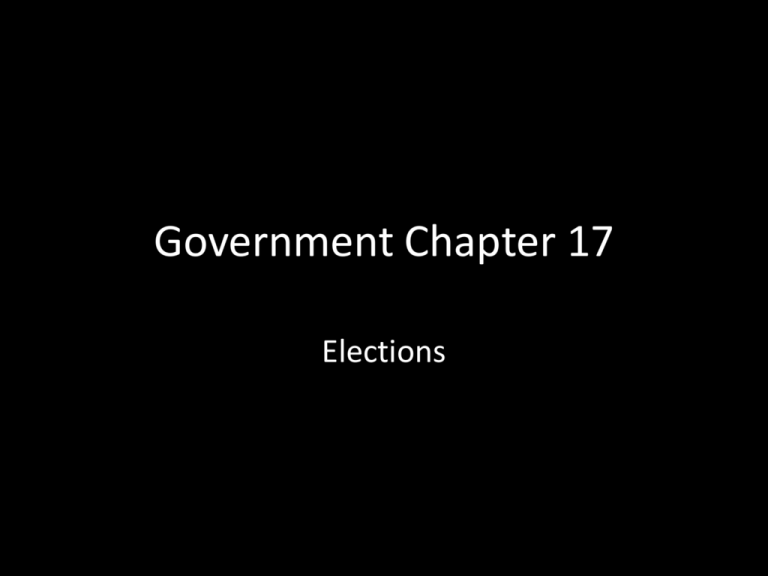
Government Chapter 17 Elections Campaigns and Nominations • Federal Election Commission Act (FECA) – requires public disclosure of spending, – bans interest group donations to campaigns – and limits individual contributions. • Federal Election Commission (FEC) – Executive agency that enforces the rules established by the FECA. – They monitor PAC's as well Campaigns and Nominations • Political Action Committees (PAC's) – Organizations formed by interest groups or businesses to legally donate money to campaigns. – They must register with the FEC • Soft Money – donations made directly to a political party for general purposes – It was a loophole to get around contribution limits • campaign manager – is responsible for the overall strategy and planning of a presidential campaign – Hired by candidates Majority vs. Plurality • Majority – more than 50% • Plurality – more than anyone else Selecting candidates • Caucus – a closed meeting of party leaders used to select candidates – Used in Iowa • primary election – type of election where several candidates compete to win the party's nomination for the general election. – Each party holds their own primaries – It is like the playoffs before the championship game, Selecting candidates • open primary – an election used to narrow candidates down to one where anyone can vote • closed primary – an election used to narrow candidates down to one where only members of a party may vote • nominating conventions – open meeting of delegates to select a party's candidate – Used to formally announce presidential candidates General voting • general election – The main election in which an officeholder is selected. – It is like the championship game. • Precinct – the basic local voting unit. – One city will contain several precincts. • ticket – the term for the presidential and vice-presidential candidates – Also refers to a ballot • Straight-party ticket – voters who select only their party's candidates in one election • strong party voter – voters who select their party's candidates in election after election. – They tend to see party as more important than issues or candidates Selecting a President • First candidates declare that they are running • Caucuses and Primaries are held between February and July • Parties declare their candidates at their national conventions in August • General Election is held in November Electoral College • electoral college – The system used to elect the president of the United States. – Set up by our founding fathers • Electors – representatives chosen by their state to cast official electoral votes Electoral College • electoral votes – The number of electors that each state gets based on population. – Electors equal the number of representatives plus senators. – The minimum number is 3 per state. – California has the most with 55. – Missouri has 10. Electoral College • 270 – number of electoral votes needed to win the presidency • 538 – total number of electoral votes. – 535 of congress plus three from D.C. • twenty-third amendment – granted three electoral votes to the District of Columbia Voting Rights Review Voting Rights Review • Suffrage – the legal right to vote • Fifteenth Amendment – extended suffrage to African Americans • Nineteenth Amendment – granted suffrage to women • Twenty-Sixth Amendment – Changed the voting age from 21 to 18 Voting Rights Review • All-white primary – attempt by southern states to limit African American suffrage by only allowing African Americans to vote in the general election. • smith v. ALLWRIGHT – Supreme Court case that outlawed ALL-WHITE primaries Voting Rights Review • Grandfather Clause – attempt by southern states to limit African American suffrage by requiring a literacy test if their grandfather could not vote before 1867. • GUINN vs united states – Supreme Court case that outlawed GRANDFATHER clauses Voting Rights Review • poll tax – attempt by southern states to limit African American suffrage by requiring an amount of money that a citizen had to pay before he or she could vote. • Twenty-Fourth Amendment – outlawed poll taxes • Voting Rights Act of 1965 – legislation that formally ended voting discrimination by providing federal enforcement.
